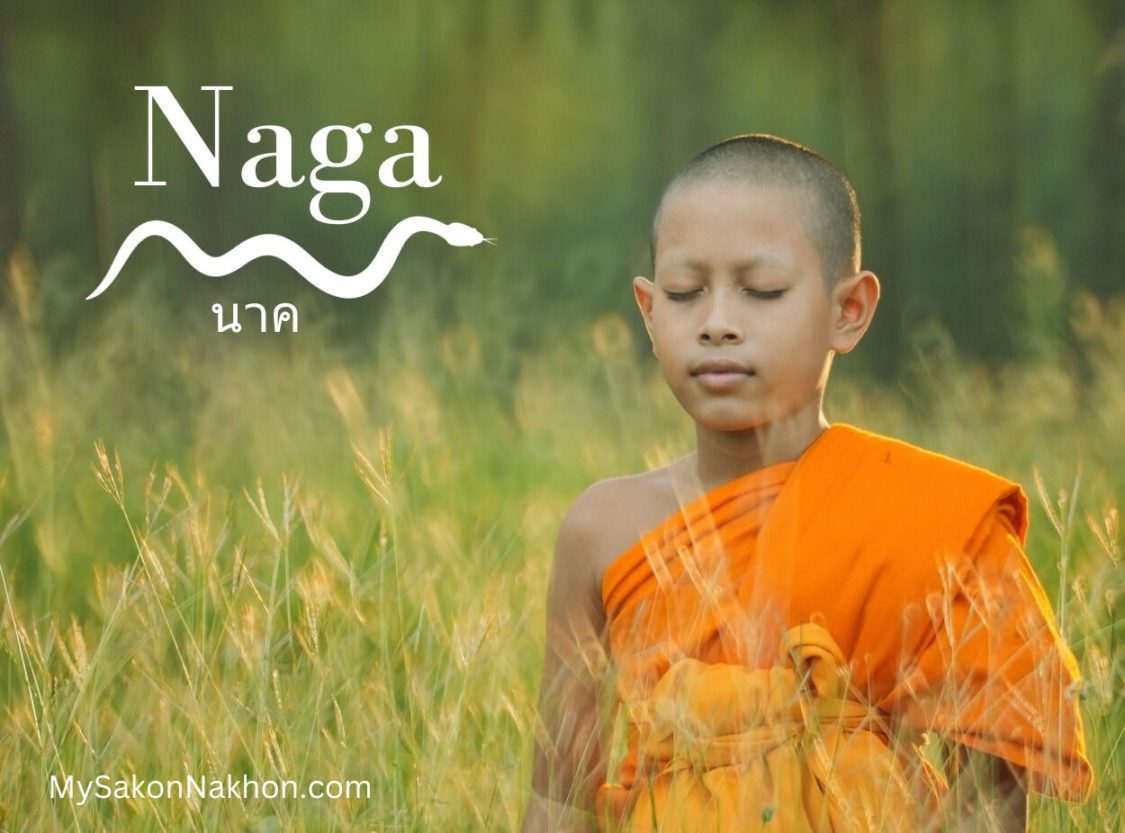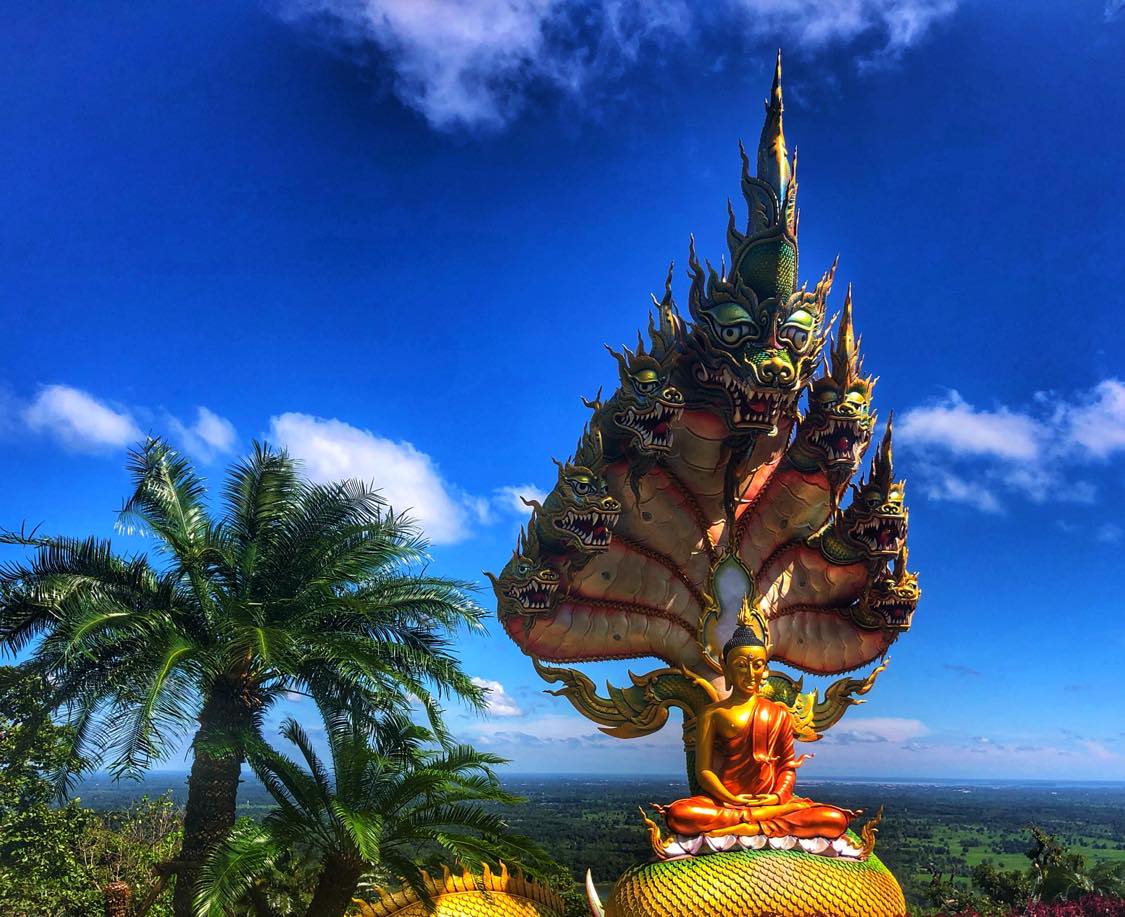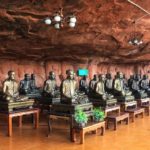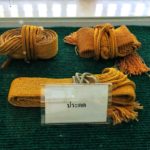
Thai Novice Monks & The Naga Serpent of Thailand

Anyone who has visited Thailand has seen Naga serpent statues at temples. But did you know that novice monks are also called “naga” — or as it is spoken in Thai: “nak” (นาค).
How did novice Thai monks come to be called Naga? One story says that a Naga King named Nandopananda wanted to become a Buddhist monk after being subdued by the power of Maudgalyayana, one of the Buddha’s closest disciples.
The Naga King was told that he couldn’t become a monk because he wasn’t human. However, the Buddha did honor the King’s request that all future novice monks be called “naga”. Also keep in mind that a great 7-headed Naga serpent named Mucalinda did protect the Buddha from a violent storm after his enlightenment, so he did kind of owe the Nagas one.
According to a similar Thai legend, a powerful Naga was once surreptitiously ordained as a monk because he could temporarily appear human. Then, one night, while sleeping in his hut, the Naga reverted to his true form — a massive snake.
A monk sharing the hut woke up and was startled to find a giant snake beside him. He quickly fled and told the Buddha, who then summoned the Naga, informing him that he could no longer be a monk. The saddened Naga wept at this news. To console the Naga, the Buddha decreed that all monk candidates would henceforth be called “naga” — a tradition that continues to this day.

The Thai Novice Monks (Naga) Ceremony
A Thai boy or young man can be ordained as a “naga” (or novice) any time before the age of 20. As a novice, they obey all the same rules as monks do, live at the temple, and perform some monastic duties. The time period that a boy remains a practicing novice (living at the temple) varies widely, and can be for as little as a few days.
Nagas in Thailand cannot become ordained monks until they are 20 years old. And all Thais are encouraged to become monks for a brief period at this age (usually for a period of 3 months). There are no good statistics on the percentages these days, but experience tells us well over 50% of Thai males still become Buddhist monks for at least a short period of time, even if for just a week. And not all go through the following naga ceremonies.
Before becoming ordained as a naga, the boy will undergo a sacred ritual called Tham Kwan Nak (ทำขวัญนาค). The Thai word kwan (ขวัญ) refers to that spiritual part of you which is responsible for all happiness, courage, and well-being (all the good things in life). In the Issan language it means that which is lovely and cherished.
A Tham Kwan Nak ceremony is conducted to strengthen, preserve, and honor this power within the young naga. It is conducted by a “Mor Nak” (หมอนาค), or Dr. Naga, who is a special master of this sacred ceremony.
During this Thai Buddhist ritual, the boy will be dressed in a white robe, while his head and eyebrows are shaved; sweets, incense, and flowers are offered up to the Naga serpent spirits; blessings are given; ceremonial tea drunk; and sacred threads of good fortune called “sai sin” tied around the boy’s wrist by his parents, family members, and the Mor Nak.
The next day the Naga Ordination (นาคบวช) Ceremony will be held at the temple. This ceremony includes what is known as the Hae Nak (แห่นาค) procession, where the would-be novices walk in a right-hand circle around the Ubosot (Sim), pavilion, pagoda, or temple grounds where the ordination is held.
Hae Naks are often simple, humble processions, but occasionally can be grand affairs, resembling parades and including elephants and floats. The procession is said to prepare the novices in body, speech, and mind for their ordination and duties as a monk in training (i.e. naga).
The Naga Ordination ceremony is not held in India, nor is there any mention of it in the Indian Buddhist texts. It is a ritual held only in Thailand and other SE Asian Buddhist countries, such as Myanmar (Burma), where the Naga serpent figure holds special religious prominence
.
- The Hidden Dharma of Thai Language & Culture - May 11, 2024
- The Royal Ploughing Ceremony in Thailand – A History - May 8, 2024
- Dying Well the Buddhist Way in Thailand - May 7, 2024




